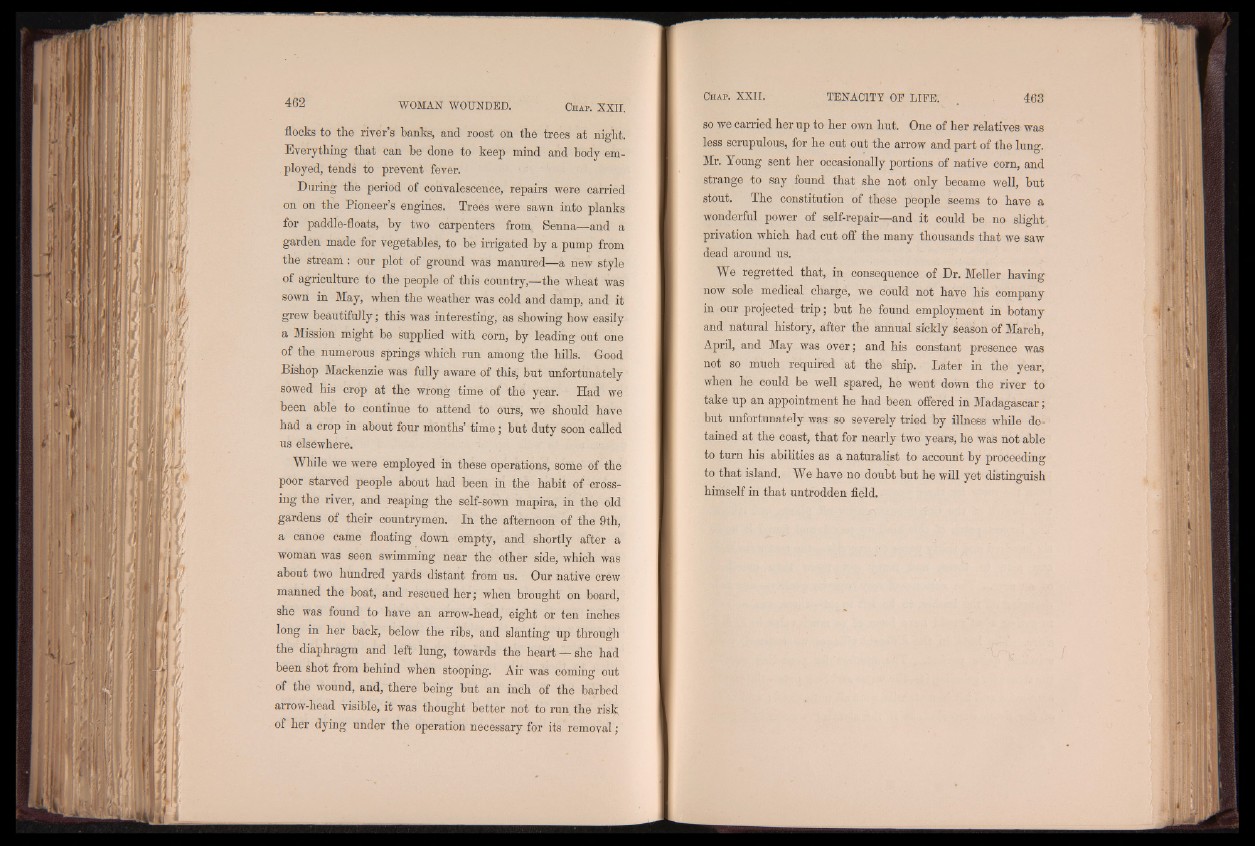
flocks to the river’s banks, and roost on the trees at night.
Everything that can be done to keep mind and body employed,
tends to prevent fever.
During the period of convalescence, repairs were carried
on on the Pioneer’s engines. Trees were sawn into planks
for paddle-floats, by two carpenters from Senna—and a
garden made for vegetables, to be irrigated by a pump from
the stream: our plot of ground was manured—a new style
of agriculture to the people of this country,—the wheat was
sown in May, when the weather was cold and damp, and it
grew beautifully; this was interesting, as showing how easily
a Mission might be supplied with corn, by leading out one
of the numerous springs which run among the hills. Good
Bishop Mackenzie was fully aware of this, but unfortunately
sowed his crop at the wrong time of the year. Had we
been able to continue to attend to ours, we should have
had a crop in about four months’ time; but duty soon called
us elsewhere.
While we were employed in these operations, some of the
poor starved people about had been in the habit of crossing
the river, and reaping the self-sown mapira, in the old
gardens of their countrymen. In the afternoon of the 9th,
a canoe came floating down empty, and shortly after a
woman was seen swimming near the other side, which was
about two hundred yards distant from us. Our native crew
manned the boat, and rescued her; when brought on board,
she was found to have an arrow-head, eight or ten inches
long in her back, below the ribs, and slanting up through
the diaphragm and left lung, towards the heart — she had
been shot from behind when stooping. Air was coming out
of the wound, and, there being but an inch of the barbed
arrow-head visible, it was thought better not to run the risl^
of her dying under the operation necessary for its removal;
so we carried her up to her own hut. One of her relatives was
less scrupulous, for he cut out the arrow and part of the lung.
Mr. Young sent her occasionally portions of native corn, and
strange to say found that she not only became well, but
stout. The constitution of these people seems to have a
wonderful power of self-repair—and it could be no slight
privation which had cut off the many thousands that we saw
dead around us.
We regretted that, in consequence of Dr. Meller having
now sole medical charge, we could not have his company
in our projected trip ; but he found employment in botany
and natural history, after the annual sickly season of March,
April, and May was over; and his constant presence was
not so much required at the ship. Later in the year,
when he could be well spared, he went down the river to
take up an appointment he had been offered in Madagascar;
but unfortunately was so severely tried by illness while detained
at the coast, that for nearly two years, he was not able
to turn his abilities as a naturalist to account by proceeding
to that island. We have no doubt but he will yet d is tin g uish
himself in that untrodden field.